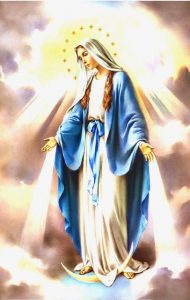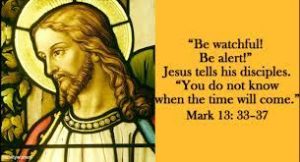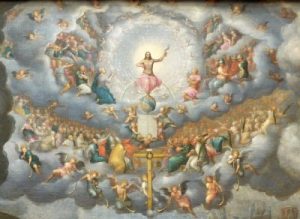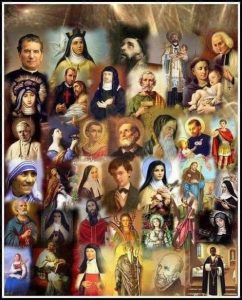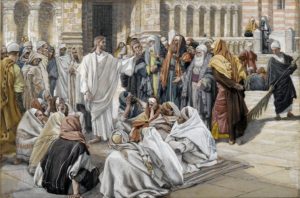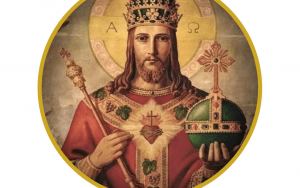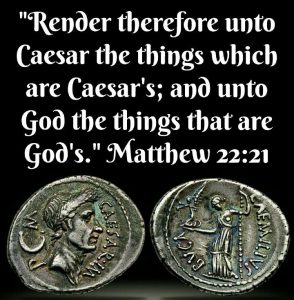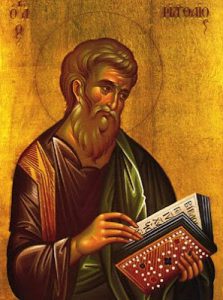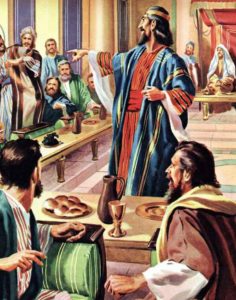Hace dos años compuse un himno de la Iglesia Católica de la Inmaculada Concepción en Sparks, NV, donde había sido asignado anteriormente. Agradezco a la Santísima Madre que me inspiró a ponerle letra a la canción. Estoy muy sentimental con esta solemnidad de la Inmaculada Concepción porque fue cuando hice mi primera misa después de mi ordenación hace treinta y tres años. La Santísima Madre se convierte en mi madre que está tan cerca de mi corazón porque sé que ella siempre está ahí cuando más la necesito. Es inimaginable para cualquier sacerdote sin la protección materna de la Santísima Madre porque un sacerdote es un “Alter Christus”, el otro Cristo. Nuestro Señor Jesús está muy cerca del corazón de Su madre. María dijo: “He aquí yo soy la esclava del Señor. Que se haga en mí según tu palabra”. Ella es fiel en cumplir la palabra de Dios que todos debemos hacer.
It was two years ago that I composed the hymn of the Immaculate Conception Catholic Church, Sparks, NV where I was assigned. I thank the Blessed Mother who inspired me to put words into the song. I am very sentimental with this solemnity of the Immaculate Conception because it was when I did my first mass after my ordination 33 years ago. The Blessed Mother becomes my mother who is so close to my heart because I know that she is always there when I need her. It is unimaginable for any priest without the maternal protection of the Blessed Mother because a priest is an “Alter Christus,” the other Christ. Our Lord Jesus is very close to the heart of His mother. Mary said, “Behold, I am the handmaid of the Lord. May it be done to me according to your word.” She is faithful to fulfill God’s word which we all must do.
Hoy celebramos el triunfo de la misericordia de Dios al preparar a María, la elegida, desde el vientre de su madre, Santa Ana. Ella fue concebida inmaculadamente sin ninguna mancha de pecado. María estuvo llena de la gracia de Dios desde el primer momento de su existencia. A lo largo de su vida, María Santísima siempre ha estado totalmente vuelta hacia Dios, completamente abierta a la llamada de Dios y a su presencia.
Today, we celebrate the triumph of God’s mercy as He prepared Mary, the chosen one, from the womb of her mother, St. Anne. She was immaculately conceived without any stain of sin. Mary was full of God’s grace from the first moment of her existence. Throughout her life, Blessed Mary has always been totally turned towards God, completely open to God’s call and His presence.
La lectura del evangelio de hoy nos lleva a muchos puntos de reflexión y meditación:
Primero, sugiere que María luchó por recibir este extraordinario favor de Dios y por todo lo que implicaría para su especial misión en la Historia de la Salvación. En el Libro del Génesis, nuestros primeros padres, Adán y Eva, no pudieron resistir la tentación de comer del árbol prohibido. A pesar de las muchas maneras en que Dios los había bendecido en el jardín, tomaron más de lo que tenían derecho. Habiendo rechazado de esta manera la voluntad de Dios, se escondieron de Dios. Fue un vergonzoso acto de orgullo que los llevó a pensar que eran dioses. Por lo tanto, para restaurar esas relaciones rotas entre los hombres y Dios, fue un momento oportuno en que Dios nos buscó de regreso a Él a través del corazón misericordioso de la Santísima Madre para cooperar con Su plan.
Today’s gospel reading is leading us to many points for reflection and meditation:
First, it suggests that Mary struggled to receive this extraordinary favor from God and for all it would entail for her special mission in the Salvation History. In the Book of Genesis, our first parents, Adam and Eve, could not resist the temptation to eat from the forbidden tree. Despite all the many ways that God had blessed them in the garden, they took more than they were entitled to. Having rejected God’s will in this way, they hid from God. It was a shameful act of pride that led them to think that they were gods. Thus, to restore those broken relationships between men and God, it was an opportune time that God sought us back to Him through the gracious heart of the Blessed Mother to cooperate with His plan.
En segundo lugar, cuando Madre María se entregó a través de su “Fiat”, su Sí a Dios, se convirtió en fuente de bendición para toda la humanidad, la elegida a través de la cual Jesús vino a nosotros. Como María, debemos entregar nuestras vidas a Dios que tanto nos ha favorecido, permitiendo que Dios obre en nosotros y a través de nosotros. A través de nuestra entrega total, nosotros también damos a luz a Cristo en nuestras vidas convirtiéndonos en fuente de bendición para los demás.
Second, when Mother Mary surrendered through her “Fiat,” her Yes to God, she became a source of blessing to all of humanity, the chosen one through whom Jesus came to us. Like Mary, we are to surrender our lives to God who has so favored us, allowing God to work in and through us. Through our complete surrender, we too give birth to Christ in our lives becoming a source of blessing for others.
En tercer lugar, la santidad y la bondad de María son producto de su apertura a la palabra de Dios y al llamado de Dios que vivió en medio de los desafíos y luchas por comprender el mensaje de un ángel que le dijo: “No temas, María, porque has hallado gracia ante Dios. Vas a concebir y a dar a luz un hijo y le pondrás por nombre Jesús.” Por su gracia especial, recibe una relación íntima con su Hijo concebido a través del Espíritu Santo, que penetró su corazón humano.
Third, Mary’s holiness and goodness is a product of her openness to God’s word and God’s call which she lived out amid the challenges and struggles to understand the message of an Angel who said to her, “Do not be afraid, Mary, for you have found favor with God. Behold, you will conceive in your womb and bear a son, and you shall name him Jesus.” Because of her special grace, she receives an intimate relationship with her conceived Son through the Holy Spirit, who penetrated her human heart.
Hermanos y hermanas, ofrezcámonos haciendo lo que Dios nos pide y abriéndonos más completamente a la palabra de Dios y a la voluntad de Dios para nuestras vidas. Mientras tratamos de responder al mismo llamado, podemos buscar en María quien es nuestra Madre, nuestra inspiración y ayuda. Así como María tuvo una experiencia humana más oscura debido al rechazo de la humanidad hacia su Hijo Jesús, ella permaneció completamente en la palabra vivificante de Dios.
Brothers and Sister, let us offer ourselves over by doing what God asks of us and opening ourselves more completely to God’s word and God’s will for our lives. As we try to answer the same call, we can look to Mary for inspiration and for help. Just as Mary had an experience of a darker human experience because of humanity’s rejection of her Son, Jesus, she completely remained to God’s life-giving word.
Este tiempo de Adviento nos llama a ser tan abiertos como María a la fidelidad de su misión, incluso en nuestros tiempos de dolorosa lucha. Si seguimos confiando en el plan de Dios, hay ese cumplimiento y también nos convertimos en fuente de bendiciones para los demás y el mundo.
This season of Advent calls on us to be as open as Mary to her fidelity of her mission, even in our own times of painful struggle. If we keep on trusting in the plan of God, there is that fulfillment and we also become the source of blessings for others and the world.
María fue concebida sin pecado y sostenida aún más a través de estas palabras de nuestro Padre San Agustín: “Porque el único entre los nacidos de mujer fue nuestro Santo Señor Jesús, quien por la extrañeza de Su nacimiento sin mancha no sufrió las contaminaciones de la corrupción terrenal sino los disipó por majestad celestial”. (FC, Vol. 30, Cartas de San Agustín 165-203)
“Oh María, sin pecado concebida, ruega por nosotros que recurrimos a ti”.
Mary was conceived without sin and further upheld through these words of our Father St. Augustine, “For wholly alone of those born of woman was our Holy Lord Jesus, who by the strangeness of His undefiled Birth has not suffered the pollutions of earthly corruption but dispelled them by heavenly majesty.” (FC, Vol. 30, Saint Augustine Letters 165-203)
“O Mary, conceived without sin, pray for us who have recourse to thee.”
Padre Arlon, OSA
